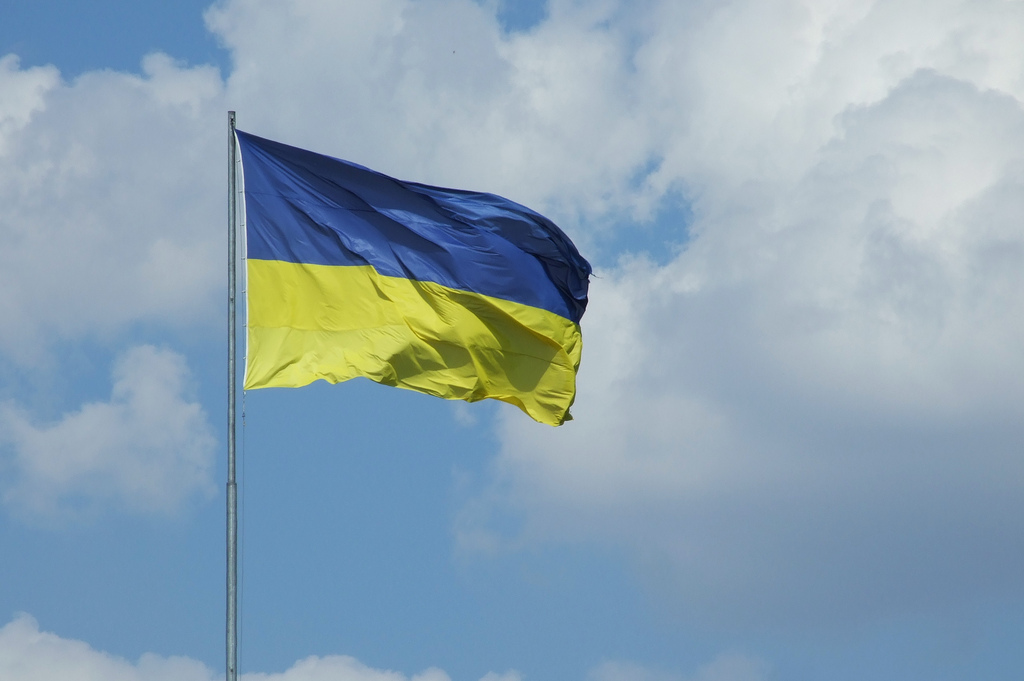The crisis in Ukraine has just escalated and spread to our shores. By sending military supplies to the government in Kiev, Stephen Harper is drawing Canada into the crisis as a belligerent and playing into the hands of Putin’s most hawkish advisers. Harper’s policy shows the kind of good intentions that pave the way to Hell. Canada can do better.
Military support from NATO in the face of Russian opposition could help Putin justify his own unilateral missions – like the dubious supply convoy that is now waiting at the Ukrainian border, or even his secret weapon, troops, and armour deliveries. Also: what would happen if someone shot down the Canadian supply plane, or that of any NATO member? Would that put us at war with Russia?
European (especially Ukrainian) dependence on Russian oil is a trump card in Putin’s deck, even more than other economic ties or even the military threat. At immediate stake is much of Europe’s energy supply, and a humanitarian crisis as winter approaches. Putin could decide that France, Germany, Britain etc share a little of the vulnerability of the former Soviet republics – some of these have already faced cyber attacks, invasions, and economic disruption since the re-invigoration of the Russian Federation under Putin.
Putin could, to paraphrase Alberta’s opponents of the 1980 National Energy Program, let the Western bastards freeze in the dark.
A strong political and financial investment in energy independence, renewable energy, and a reduction of energy use in Europe could be decisive in curbing Russian soft power and would have environmental and technology benefits as a bonus. If Canada were to champion this strategy, it could enhance our reputation as an “honest broker” looking for peaceful solutions, and build ties to progressive politics in Europe. If our leaders won’t listen, this could also be a good activist “bottom-up” strategy to counter an inevitably top-down decision on military action. Recall that in 2003, history’s largest global protest against war and the overwhelming majority of public opinion failed to stop the invasion of Iraq.
US Secretary of State John Kerry is already pushing an energy-centred strategy – but his preferred mix would include ramping up US energy sales to Europe, diversifying Ukraine’s energy supply, and privatizing its energy sector. Kerry’s plan leaves a sneaking suspicion that the wild lie being repeated often enough on Russia Today has a kernel of truth: that the whole reason for the pro-Europe Maidan uprising in Kiev was to hand over Ukraine lock, stock and barrel to a shadowy cabal of CIA-backed industrialists. There should be a progressive plan on the table that offers a better chance at long-term security without just shifting Ukraine’s dependency West.
Behind the cover of these fantasy stories, Russia is getting away with the barely-disguised invasion of a European state. The North American right is happy to rattle sabres against Putin and raise the tension all ’round. Europe’s right rather likes Putin, the world’s most powerful right-wing strongman – that is, when they aren’t signing up to help the Ukrainians fight against him. The left everywhere seems content to chuckle at past Western missteps, comparing Putin’s actions (sometimes favourably!) to the invasions of Iraq, Afghanistan and the Balkans; even such solid thinkers as Chomsky are sticking to this picture. These attitudes could lead to an escalating European war.
We should encourage and support Europe to adopt more renewable energy, ever-improving public transport, efficiency in homes and businesses, and perhaps even a little pre-emptive conservationism to balance out their relations with Russia. As this is an immediate, potentially terrible crisis, there should be some urgency about strategy and tactics. They have until late fall to batten down their hatches.
Imagine the signal it would send Putin if Europeans started knitting sweaters now, showing the world that rather than facing bombs and tanks, they would start by facing a little cold weather. Trading security for a little fuel oil isn’t a smart choice in the long run.
There haven’t traditionally been many votes to be won in foreign policy (a state of affairs which is not mirrored inside Russia, by the way), but Canada should take leadership on this very important, deeply troubling file. Harper has chosen to lead with his chin; some other party might want to use a different part of their head.
Flick Harrison is a media artist and activist in Vancouver, BC with some experience in international affairs. He is currently working with Art and Social Change at SFU to study art and social change in a global context, and has been writing for alternative media for many years.




